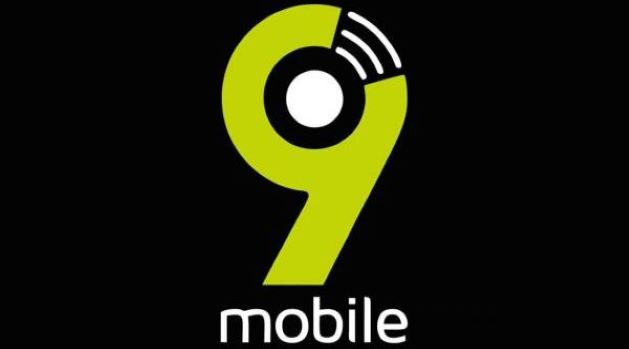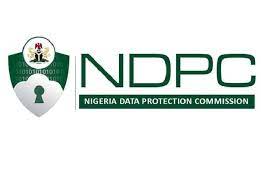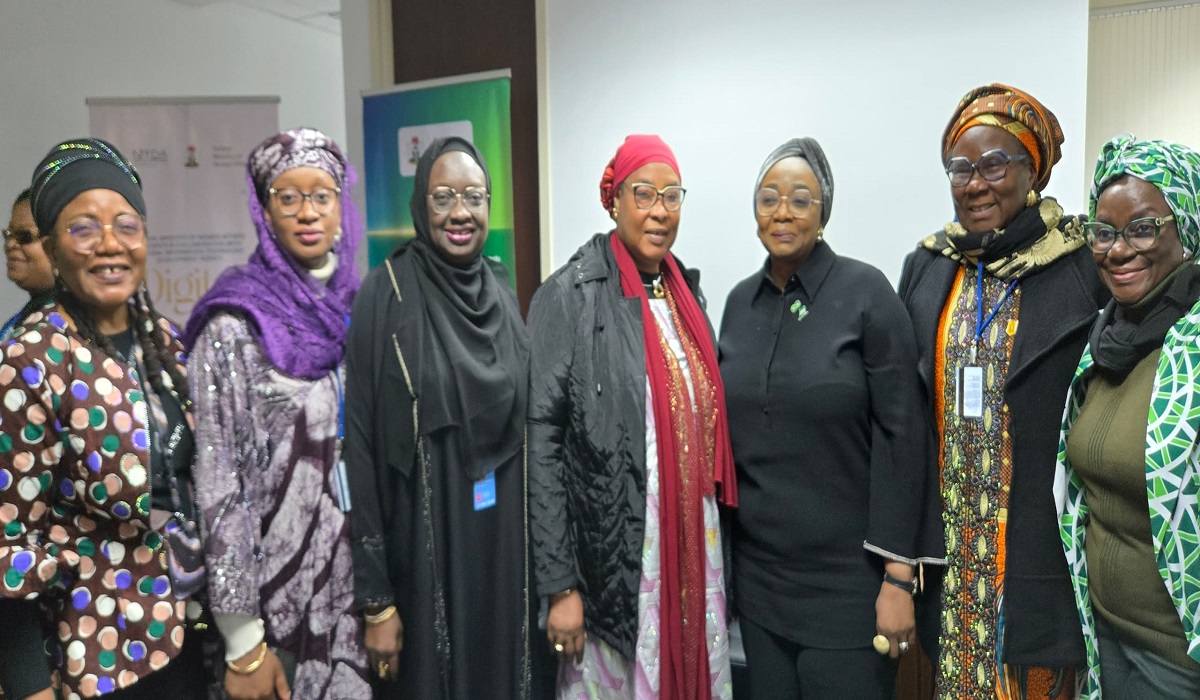Telecom
6 ways Google is working with AI in Africa

Lounging on Labadi Beach, browsing the shops on Osu’s Oxford Street, ending the day with a meal in a local chop bar: This is Accra, Ghana’s bustling capital city. It’s also where, in 2018, we opened our first AI research center in Africa.

The center houses research labs that explore how we can use AI to help solve pressing problems affecting millions of people both locally and globally, like mapping buildings in remote locations to provide better electricity. Our local researchers collaborate with research teams across the globe to work on AI-based tools to create change for communities worldwide, including in various countries across Africa.
Here are six AI projects we’re working on, in our Accra research center and beyond, and how we’re hoping they’ll make a difference.
1.Mapping buildings
Even with satellite imagery, it can be difficult to map buildings in remote locations. When these buildings go unmapped, it can make things like planning infrastructure difficult. Our Open Buildings dataset project, launched by a team in the Accra research center, combines AI with satellite imagery to pinpoint the location of buildings. That helps governments and nonprofit organizations understand the needs of residents and offer assistance. In Uganda, for example, the nonprofit Sunbird AI is using the dataset and working with the Ministry of Energy in Lamwo district to study villages’ electrification needs, and plan potential solutions, such as prioritizing electricity in important areas like commercial centers. And we’re continuing to expand our Open Buildings dataset to see how it can help communities in more areas. In addition to various countries in Africa, the dataset now covers 16 countries in Southeast Asia, including Bangladesh and Thailand.
2. Forecasting floods
The United Nations has reported that half of the world’s least-developed countries lack adequate early warning systems for disasters, including floods. In West and Central Africa specifically, where flooding can be severe, early warning systems could enable better preparation and potential evacuation. Lifesaving technology, like our Flood Forecasting Initiative, can help residents stay safe and give governments time to prepare. We’re using AI models to predict when and where riverine floods will occur in 80 countries worldwide, including 23 in Africa. Our Flood Hub platform displays the forecasts up to seven days in advance, with detailed inundation maps — showing different water levels predicted in different areas — so people know what to expect where they live.
What is the Google FloodHub?
3. Predicting locusts
Locust infestations can have a devastating effect on food crops. Through collaborations with AI-product focused company InstaDeep and the Food and Agriculture Organization (FAO) of the United Nations, our team at the Google AI Center in Ghana is helping to better detect locust outbreaks and enable farmers to implement control measures. The AI Center team is working on building a model that forecasts locust breeding grounds using historical data from the FAO and environmental variables like rainfall and temperature.
4. Improving maternal health outcomes with ultrasound
Ultrasounds can be crucial for identifying potential complications during pregnancy. In recent years, sensor technology has evolved to make ultrasound devices significantly more portable and affordable. Globally, we have been working on building AI models that can read ultrasound images and provide important information to healthcare workers. In Kenya, for instance, we are partnering with Jacaranda Health to help improve our ultrasound AI technology, with a focus on using handheld ultrasound devices that don’t need to be attached to larger machines. This can help people who aren’t trained to operate traditional ultrasound machines to acquire and interpret ultrasound images and triage high-risk patients, simply by sweeping the handheld probe across the mother’s belly.

5. Helping people with non-standard speech make their voices heard
We built Project Relate, an Android app that uses AI research, to help people with non-standard speech communicate more easily. After recording 500 phrases, users receive a personalized speech recognition model. Now available for user testing in Ghana, it can transcribe speech into text; use a synthesized voice to repeat what the speaker has said; and engage Google Assistant to complete tasks, such as asking for directions, playing a song or turning on the lights.
6. Teaching reading to children worldwide
Due in part to the effects of COVID-19, it’s estimated that about two-thirds of 10-year-olds globally are unable to read and understand a simple story. Read Along, Google’s AI-based reading tutor app and website, is helping to increase child literacy. Diya, the in-app reading buddy, listens to the speaker reading aloud, offering support when they struggle, and rewarding them when they do well.
Over the past three years, more than 30 million kids have read more than 120 million stories on Read Along. That progress helps the children, but it also affects their families. For example, one of our Lagos users, William, began using the app when he was 10 years old. He went from being able to read for three minutes at a stretch to reading for 90 minutes at a time. “I am more confident about William’s future because he can read well,” said William’s mom, Martha, “Not just reading well — he now loves to read.”
Telecom
9mobile Denies Shutdown Rumours, Promises Improved Services

9mobile, telecommunications operator, has described as untrue the rumors suggesting that it has shut down its operations.

according to the telcos, these claims are entirely baseless and aimed at causing unnecessary panic among our valued subscribers, the mobile operator said in a statement.
“We understand that some customers have recently faced challenges, particularly with Mobile Number Portability (MNP), a service that enables seamless network switching.
“We want to clarify that 9mobile has never restricted customers from porting to other networks. We remain fully compliant with industry regulations and committed to delivering fair, transparent, and customer-focused services.
“While there have been temporary technical challenges affecting MNP, these issues have now been largely resolved. Some minor delays may still occur due to ongoing system optimizations, but we are actively working to ensure a smoother experience for all users.
“As a proudly Nigerian brand, we embody the resilient spirit of our people and remain steadfast in our commitment to overcoming challenges. We acknowledge the temporary service disruptions some customers may have experienced in different locations.
“However, we assure you that these disruptions are part of a broader transformation effort aimed at modernizing our infrastructure and improving overall service quality.
“Our ongoing investments in network upgrades and service expansion will soon yield significant improvements, ensuring reliable connectivity for individuals, businesses, and communities.
“We sincerely appreciate the patience and loyalty of our subscribers during this transition. While challenges exist, we are making significant progress and are confident that brighter days are ahead. We remain dedicated to providing exceptional service and keeping you connected to limitless opportunities”.
Telecom
TikTok and Truecaller Face NDPC Investigation Amid Data Protection Concerns

Nigeria Data Protection Commission (NDPC) has initiated an investigation into the data processing practices of Tiktok and Truecaller, following growing concerns about potential privacy violations.

Dr. Vincent Olatunji, the Chief Executive Officer of the NDPC, made the announcement today during a press conference in Abuja, where he also revealed the issuance of the Nigeria Data Protection Act – General Application and implementation directive (NDPC Act – GAID), 2025.
Dr Olatunji stated that the commission’s primary concern is how these platforms manage Nigerian users’ personal data, including potential breaches of consent, data sharing with third parties, and overall compliance with the Nigeria Data Protection Act (NDPA), 2023. He confirmed that the NDPC is actively investigating Tiktok and Truecaller’s data processing activities to ensure they comply with Nigeria’s data protection laws.
“The goal is to safeguard the privacy rights of Nigerians and hold organizations accountable for how they collect, store, and use personal data,” he added.
This investigation comes amid increasing scrutiny of global tech companies regarding data privacy, especially concerning how personal information is processed, stored, and transmitted beyond national borders.
The NDPC act – GAID, 2025, issued today, provides a detailed framework for implementing Nigeria’s data protection law, outlining compliance guidelines, enforcement mechanisms, and obligations for both public and private organizations.
Dr Olatunji emphasized that the directive aims to strengthen Nigeria’s digital economy by fostering trust in data governance while ensuring individuals’ rights to privacy are respected in accordance with international best practices.
He reiterated that companies operating in Nigeria must comply with the country’s data protection regulations or face regulatory actions, including fines and potential restrictions.
The NDPC has urged the public to report any data privacy violations and reaffirmed its commitment to transparency and due process in its investigations.
The commission noted that reporting data breaches has become more accessible through dedicated channels on its official website.
Telecom
Nigeria Charts New Course to Bridge Gender Digital Divide at UN’s CSW69

In a resounding commitment to bridging gender digital divide, the National Information Technology Development Agency (NITDA), in collaboration with the Federal Ministry of Women Affairs (FMWA), has taken a decisive step toward closing the gender digital divide by presenting the National Gender Digital Inclusion Strategy (NGDIS) at the United Nations 69th Session of the Commission on the Status of Women (CSW69). Themed “Digital Harmony: Advancing Gender Inclusion by Empowering Women and Children for a Secure Digital Future,” the high-level event reinforced Nigeria’s commitment to fostering equitable access to digital technology, online safety, and economic empowerment for women and children.

L-R: Esther Eghobamien-Mshelis – President of UN CEDAW, Iklima Musa – Special Assistant to the Director General of NITDA, Noimot Salako – Deputy Governor Ogun state, Maryam Ciroma – former minster of women affairs, Imaan Sulaiman- Minister of Women Affairs, Josephine Anenih – former Minister of women affairs and Dr Maryam Keshinro – Permanent Secretary – Ministry of Women Affairs at the United Nations 69th Session.
Speaking at the event, Iklima Musa Salihu, Special Assistant to the Director General on Strategic Partnerships, presented the strategy, emphasizing NITDA’s role in driving digital transformation and creating opportunities for women and girls to actively participate in the digital economy.
The NGDIS, developed in alignment with Nigeria’s Renewed Hope Agenda and Sustainable Development Goals (SDGs) 5 and 8, seeks to remove barriers to digital inclusion by expanding access to digital skills training, infrastructure, and mentorship opportunities for women and girls.
Kashifu Inuwa Abdullahi, Director General of NITDA as represented by the SA, in his special remarks reaffirmed the Agency’s commitment to ensuring that Nigeria’s digital transformation is inclusive and equitable, highlighting NGDIS as a game-changer in achieving gender parity in the digital space.
He noted that the framework prioritizes digital literacy, entrepreneurship, safety, and gender-responsive policies to accelerate women’s participation in Nigeria’s growing digital economy.
The NGDIS is built on five core pillars that will drive women’s access, participation, and leadership in the digital ecosystem. It seeks to expand digital literacy and skills by ensuring at least 40% female participation in all national training initiatives.
Recognizing the role of women in Nigeria’s innovation and entrepreneurship landscape, the strategy emphasizes access to funding, mentorship, and technical assistance for female-led startups, leveraging the Nigeria Startup Act to increase financial and institutional support for women in the tech ecosystem. With 58% of young women globally experiencing online harassment, the NGDIS prioritizes online safety and cybersecurity awareness.
Speaking at the event, Minister of Women Affairs, Honourable Imaan Sulaiman, FSI, underscored the urgent need for action in tackling gender disparities in digital access.
She revealed alarming statistics that demonstrate the stark reality of the digital divide in Nigeria, highlighting that 68% of Nigerian women do not own smartphones, making it difficult for them to access online services and economic opportunities.
She stressed that this divide extends beyond access, as women and children face significant online risks, including cyber harassment, digital gender-based violence, and exclusion from the rapidly growing tech-driven economy.
She called for the swift implementation of the National Gender Digital Inclusion Strategy (NGDIS) 2024-2027, which seeks to remove the structural barriers that prevent women from fully engaging in the digital economy.
She emphasized the need for strong legal frameworks that would accelerate action in promoting digital literacy, providing safe online spaces, and empowering women to thrive in technology-driven industries.
She reaffirmed that President Bola Ahmed Tinubu’s Renewed Hope Agenda is committed to creating an inclusive digital future where no woman or child is left behind.
She urged all stakeholders to work together to transform digital access and security for women and children, making technology a tool for empowerment rather than exclusion.
As the world embraces the Fourth Industrial Revolution, NITDA in collaboration with stakeholders is taking bold and strategic steps to ensure that women and girls are not only participants but also leaders in the digital transformation journey.
The National Gender Digital Inclusion Strategy is a blueprint for action, providing a clear framework for accelerating digital inclusion, fostering entrepreneurship, and strengthening online safety for Nigerian women and children.

 Broadcasting2 days ago
Broadcasting2 days agoPublic Outrage, Legal Threats as Abuja Council Demands N500, 000 as TV Levy

 E-Financial2 days ago
E-Financial2 days agoFIRS Partners Flutterwave for Digital Payment Collection

 Telecom2 days ago
Telecom2 days agoNigeria Charts New Course to Bridge Gender Digital Divide at UN’s CSW69

 General News2 days ago
General News2 days agoNIN Enrolment Hits 117.3m – NIMC

 E-Financial2 days ago
E-Financial2 days agoZuriel Oduwole, Sterling One Foundation, and Sanwo-Olu Champion Gender Equality and Youth Empowerment

 General News1 day ago
General News1 day agoNigeria, Kenya among Nations Running out of HIV Drugs – WHO

 E-Financial2 days ago
E-Financial2 days agoBOI Launches N10Bn GLOW Fund for Female Entrepreneurs

 News1 day ago
News1 day agoNAFDAC Destroys over N1 Trillion Fake Drugs in Anambra

























